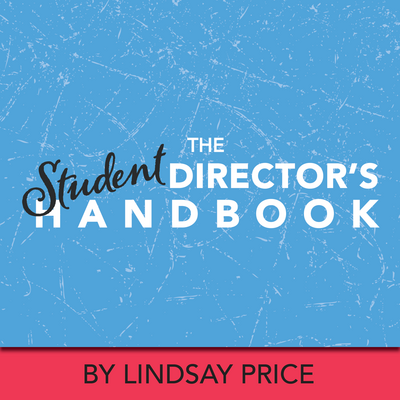How to Effectively Use a Student Assistant Director
Directing a show for your students can be a daunting task. Teachers are busy people! On top of in-class time, lesson planning, marking, administrative tasks, and all the other jobs that arise, taking on an extracurricular activity–especially one as large as a school production–might seem like a lot. However, this is a great opportunity to make an important leadership position available for one of your students: the student assistant director.
Now, some of you might think, “How will it be useful to have a student in such an important role as the assistant director? What will I do with them?” There are lots of things you can do with a student assistant director! Here are six suggestions for tasks and responsibilities that a student assistant director can accomplish.
1. Delegate
Take a load off your plate! The student assistant director could be in charge of making a props list, leading warmups, doing line runs with smaller groups of actors, or distributing notes from the previous rehearsal. They could also be in charge of tasks like distributing posters and advertising materials to the cast and crew, assisting with sign-in and sign-out, or taking photographs during rehearsals for publicity purposes (a “behind the scenes” look at the process).
2. Learning through observing
Part of the student assistant director’s role can be to watch you interact with the student actors. They can observe how you approach character work, block scenes, and deal with problems that arise. After the rehearsal, take five minutes with the student assistant director to answer any questions they have, discuss what went well at that rehearsal, and plan out what to work on in subsequent rehearsals.
3. Double duty
If you don’t want to take on two separate students, or you have a really keen and super-organized student who’s up for a big challenge, you could combine the assistant director role with that of the stage manager. They can take blocking notes during rehearsals and call the show during the production run, on top of doing the other assistant director tasks that you assign them.
4. Polishing scenes
Once a scene is blocked, student assistant directors can work with one group of student actors (while you are working with others) on polishing the scene. They should focus on details like making sure lines and cues are correct (and loud enough!), developing interesting physical traits for characters, and ensuring that students’ character intentions are clear (“What does your character want in this scene?”).
5. Directing a scene that you assign
Giving your student the opportunity to direct a scene in the show is a wonderful chance for them to learn and practice their directing skills. It also gives you the chance to see the show through someone else’s eyes, which can be really useful!
Select a scene in the show that you would like your student assistant director to work on. Sit down with your student and discuss your vision for the show and their vision for the scene. How does this scene fit into the overall structure of the show? Have the student assistant director plan their blocking in advance and have them talk you through the blocking. From there, assign your student time in rehearsal to lead the actors. Stay as hands-off as possible–perhaps schedule yourself to work on another scene at the same time. Just before the end of the rehearsal, have the actors perform for you what they’ve worked on with the student assistant director, and give them feedback.
6. Liaising with the cast and crew
Student assistant directors can be very useful in bridging the gap between you as the teacher/director and the rest of the students in the cast and crew. Students may feel more comfortable bringing problems or concerns to one of their peers rather than a teacher. Have your student assistant director check in with the cast and crew periodically to see what they can do to help out and make the rehearsal process a positive one!
Having a student assistant director can really be a positive asset to your production. Who knows–perhaps they’ll be the one directing the school show someday!
Related Articles
The Student Director's Handbook
by Lindsay Price
Help students take their show from first audition to opening night with The Student Director’s Handbook. This easy-to-use ebook is full of guidelines, tips and templates designed to help students create a vision, circumvent problems and organize rehearsals on their way to a successful production.
The Rehearsal Companion
by Kerry Hishon
You’ve chosen the play, paid the royalties, done the script analysis, held your auditions, and cast the show. Tomorrow is the first rehearsal. Are you ready? Really ready? The Rehearsal Companion can help!





